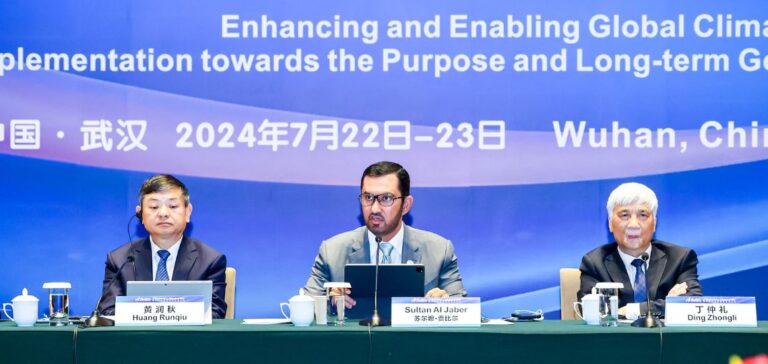China’s state-owned PetroChina recently signed the Oil and Gas Decarbonization Charter (OGDC), launched at COP28.
This commitment marks a crucial step in the global oil and gas industry’s commitment to more sustainable practices. The Charter, which brings together over 50 producers representing 42% of global production, aims to reduce carbon emissions and promote green initiatives. Prof. Dr. Sultan Al Jaber, President of the COP28We launched the Oil & Gas Decarbonization Charter at COP28 to include all stakeholders in the effort to combat climate change. It is crucial that oil and gas companies actively participate in practical solutions to keep the 1.5°C target within reach.”
PetroChina’s Green Strategy
Huang Yongzhang, Chairman of PetroChina, affirmed the company’s commitment to green development and the transition to a low-carbon economy.
He said, “PetroChina is committed to gradually substituting fossil fuels with clean energy sources, strategically replacing traditional methods and developing in a green way. We are transforming PetroChina into an integrated energy company, covering oil, gas, thermal power, electricity and hydrogen.” This is part of a three-stage strategy: clean substitution, strategic replacement and green development.
PetroChina is also stepping up its efforts in carbon capture, utilization and storage (CCUS) through industrial demonstration projects.
Global Impact and Collaboration
Bjørn Otto Sverdrup, head of the OGDC secretariat, welcomed PetroChina’s membership as a significant step towards decarbonizing the industry.
“The announcement by PetroChina executives demonstrates the growing influence of Chinese oil and gas companies in promoting low-carbon solutions. We look forward to working together to achieve our climate goals in line with the ambitions of the Charter.” The OGDC, launched at COP28 in Dubai, is part of the Global Decarbonization Accelerator (GDA), a series of initiatives aimed at accelerating the energy transition and drastically reducing global emissions.
Signatories to the Charter commit to achieving emissions targets, investing in the energy system of the future, measuring their emissions and reporting publicly on their progress.
Transparency and Training
The Charter provides a collaborative platform for signatories, industry partners and organizations to share knowledge and best practices.
Since its launch, the OGDC secretariat has implemented a structured training program focusing on high-impact priorities for 2024, such as methane emissions reduction and flaring, decarbonization strategies and greenhouse gas (GHG) emissions reporting.
Signatory companies, two-thirds of which are national oil companies (NOCs), play a crucial role in reducing global emissions.
NOCs, which control 60% of the world’s oil and gas production, are key players in the transition to a low-carbon future.
PetroChina’s membership of the OGDC reinforces the global momentum towards a more sustainable oil and gas industry, demonstrating the growing commitment of major industry players to contribute to the fight against climate change.






















